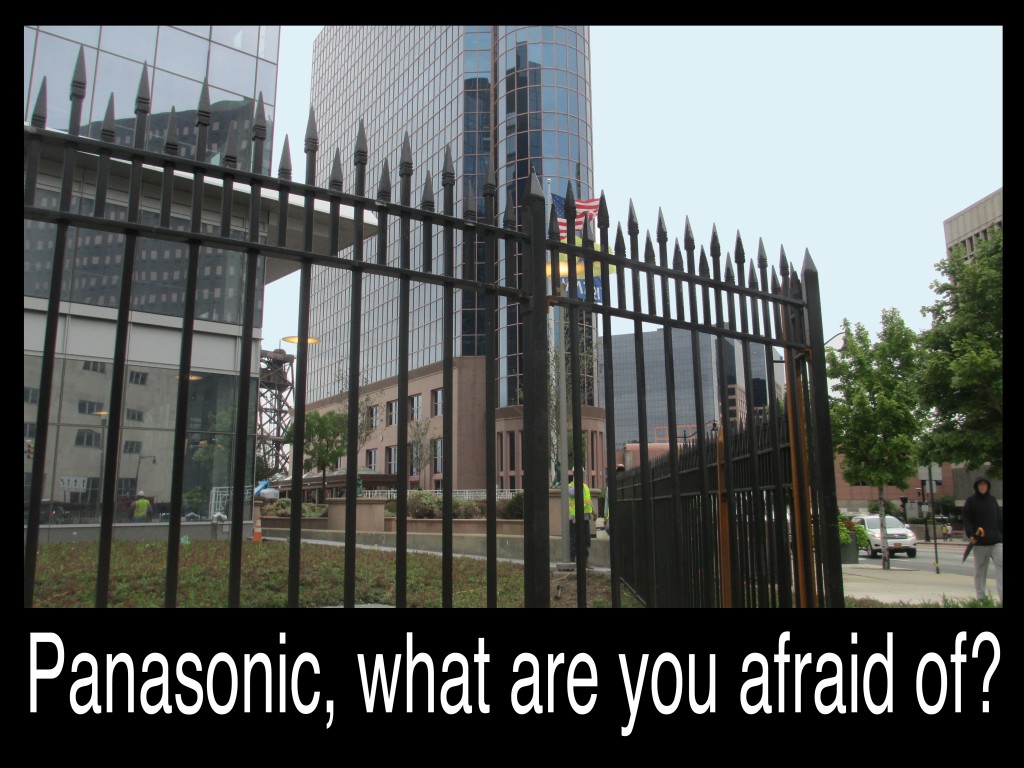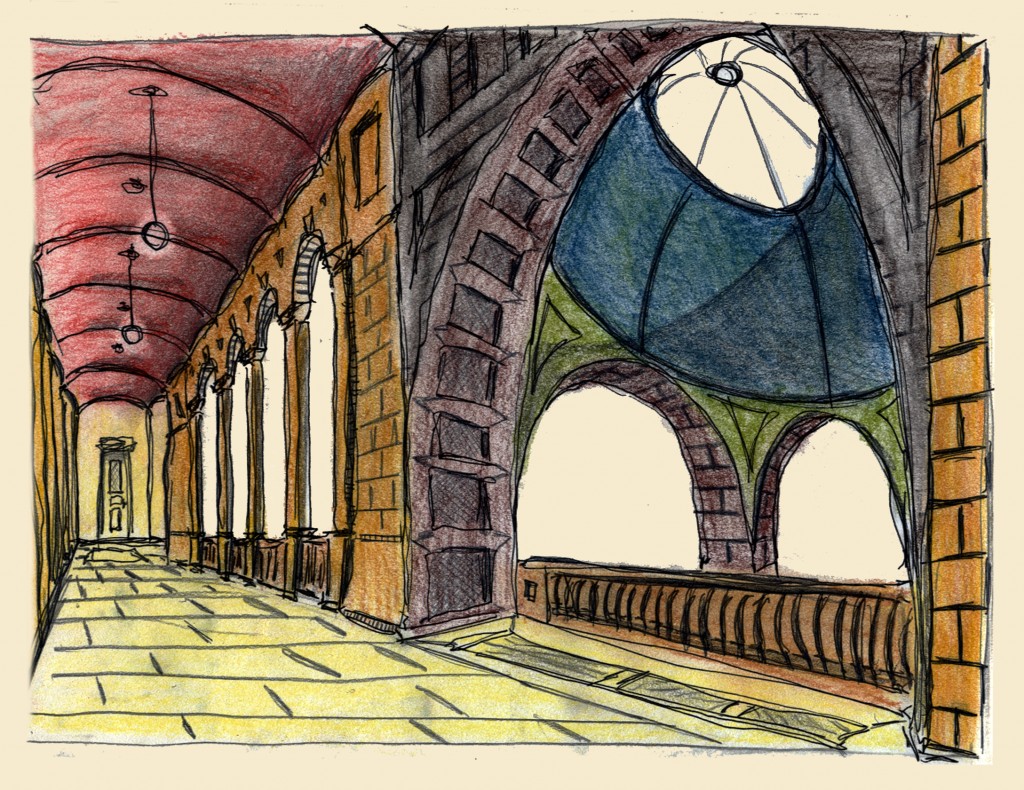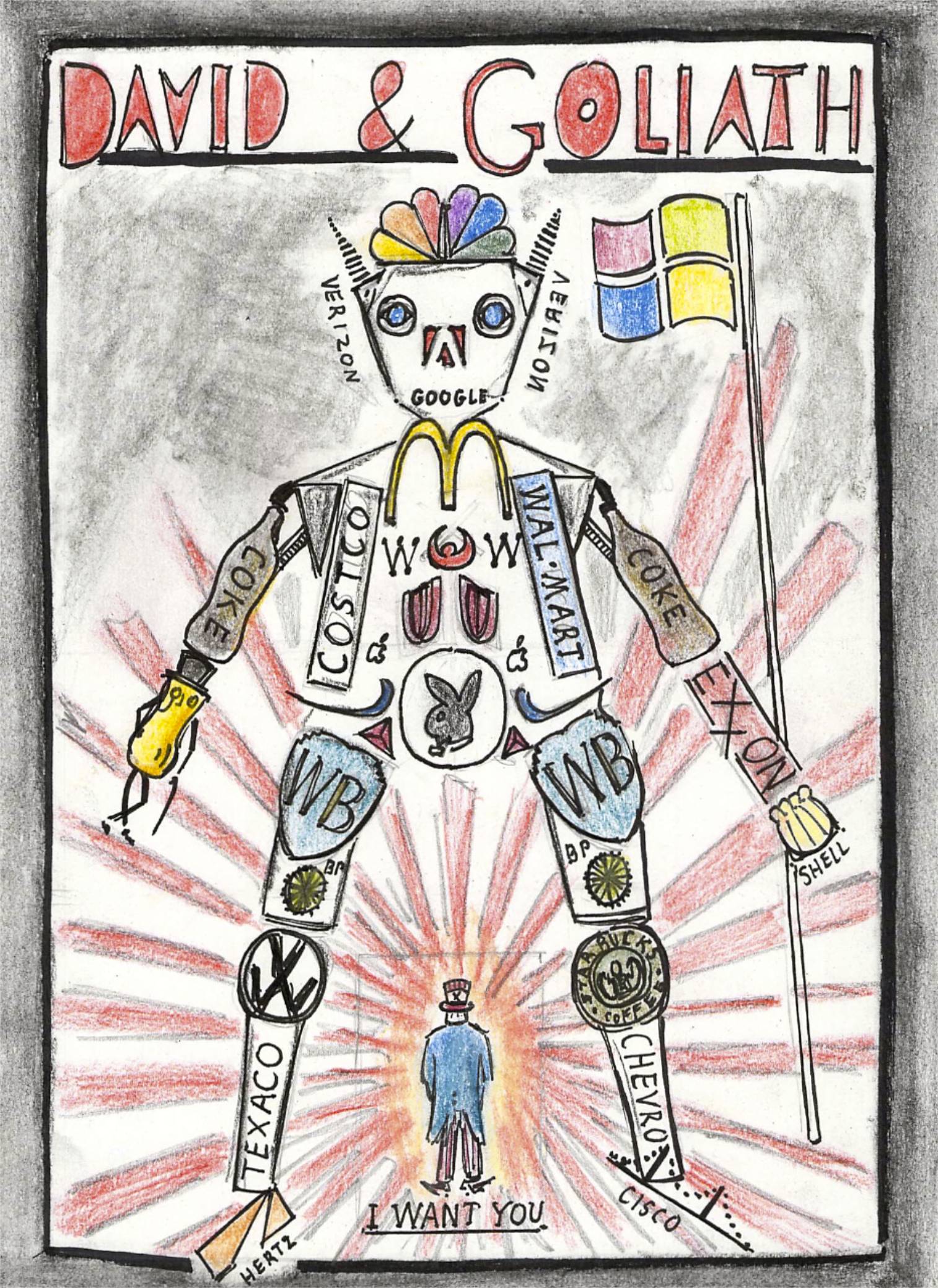I am saddened when I walk through downtown Newark. The corporate towers of the “Renaissance” Center ignore the very city that gave them millions of dollars in tax breaks. They erect austere metal fences and protect their towers with obedient security guards that threaten pedestrians with arrest. They are scared of Newark.
When Panasonic decided to move their national headquarters to Newark, I hoped they would buck the trend of icy disrespect. However, I saw that their new building turned its back to the city like so many other lifeless behemoths downtown. I wrote the following petition, signed by Newark children during the opening of Riverfront Park. On 11 June 2012, when the Central Planning Board asked Panasonic to open their grounds for public access, I read my petition in support of the city.
This poster and petition were featured in a June 2017 exhibition about about planning and urban policy at the Yuerba Buena Center for the Arts, entitled Space Brainz. The exhibit was organized by Damon Rich, a MacArthur Fellow and former lead city planner for the City of Newark.
.



.

.




